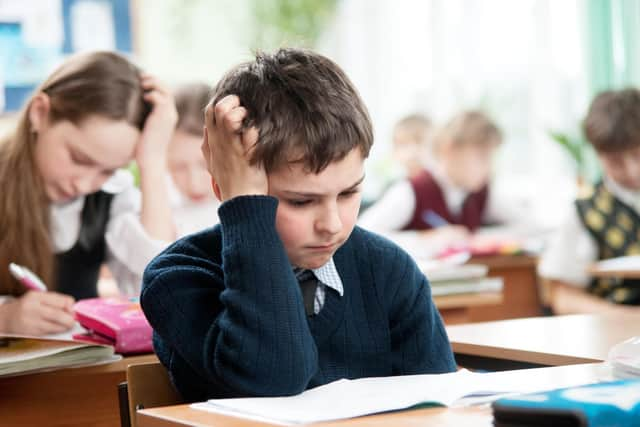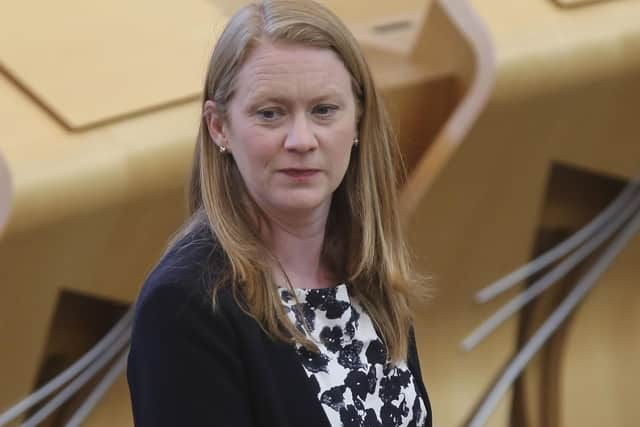Standardised tests for primary pupils in Scotland could be abolished
It has been reported that standardised testing for all of Scotland's primary schoolchildren could be abolished and sampling carried out instead.
The Organisation for Economic Co-operation and Development (OECD) team who reviewed the state of Scotland’s Curriculum for Excellence recommended that testing only a sample of children for literacy and numeracy could be a better way of determining pupil achievement.
Advertisement
Hide AdAdvertisement
Hide AdStandardised tests were introduced by the Scottish Government in 2017, as part of efforts to close the attainment gap, with youngsters being tested in primary one, four, seven and in S3 in secondary school.


However, their use on the very youngest schoolchildren has been controversial, with unions claiming some youngsters had been reduced to tears during the testing process, while increasing the workload on teachers.
New education secretary Shirley-Anne Somerville has said she will accept the OECD's recommendations and, according to reports, government sources have confirmed that includes a change to standardised testing.
Ross Greer, of the Greens, said the OECD criticism proved the tests had limited value and that a sample-based evaluation system should be reintroduced.


"Now that the education secretary has committed to accept all OECD recommendations, she must respond to the report's criticism of P1-S3 standardised assessments and the recommendation to reintroduce a survey-based evaluation system instead," he said.
Scottish Labour said the education secretary was having to unpick the mess created by her predecessor John Swinney, with education spokesman Michael Marra adding: "Much of this OECD report is a list of his policies and why they were never going to work."
Teaching union, the Educational Institute of Scotland (EIS), said "at the very least the government should scrap P1 assessments as they are at odds with the play-based approach which should apply at that age”.
EIS general secretary Larry Flanagan said: "The report seems to confirm that the government's focus on National Standardised Assessments has been a monumental distraction with little impact other than adding to the bureaucracy that bedevils teachers' working lives."
Advertisement
Hide AdAdvertisement
Hide AdParents' organisation Connect said that it had long campaigned for an end to standardised national assessments.
Eileen Prior, its executive director, said that while it was important for teachers, young people and their families to understand their progress and next steps in learning, "benchmarking and understanding where children are in their learning should not require national tests”.
However, Oliver Mundell, Tory education spokesman, who earlier this week urged the government to retain final year exams in the senior phase of high school, said: "Rigorous standardised tests are crucial to improving educational attainment and measuring progress. Ditching them altogether would be a serious mistake."
A Scottish Government spokesperson said: “In providing nationally consistent, objective and comparable information, Scottish National Standardised Assessments (SNSA) can provide a helpful additional source of information for teachers when considering children’s progress and planning next steps in learning.
“We have accepted the OECD’s recommendations in full. Ministers will also carefully consider the report’s other observations. There is no recommendation in the report on standardised assessments.”
A message from the Editor:Thank you for reading this article. We're more reliant on your support than ever as the shift in consumer habits brought about by Coronavirus impacts our advertisers.
If you haven't already, please consider supporting our trusted, fact-checked journalism by taking out a digital subscription.
Comments
Want to join the conversation? Please or to comment on this article.
